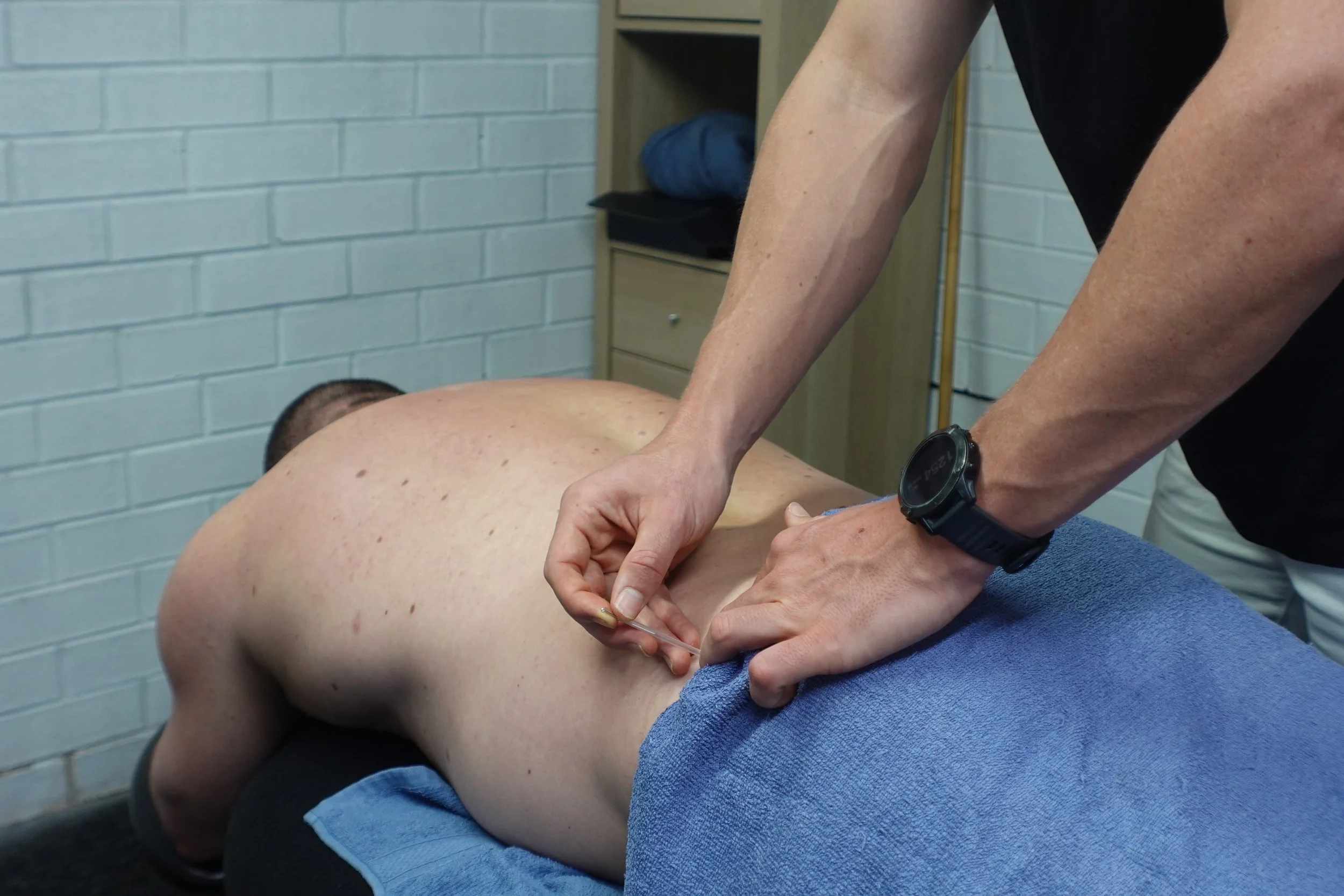Dry Needling
Targeted relief for tight, sore, or overworked muscles
Dry needling is a technique used by our Brisbane osteopaths to reduce muscle pain, stiffness, and trigger points — those tight, knotted bands in muscles that just won’t relax.
Using a fine, sterile needle (similar to acupuncture), we target the centre of the problem area to improve blood flow, reduce inflammation, and help muscles relax. It’s safe, precise, and often provides fast relief for both new injuries and chronic tightness.
What Does Dry Needling Treat?
Dry needling can help with:
Muscle tightness or knots
Headaches and neck tension
Shoulder, back, and hip pain
Running & cycling-related tightness (calves, quads, glutes)
Tendinopathies
Postural stress
Sports injuries
Referred pain patterns
It’s often combined with hands-on therapy, movement work, and strength training as part of a broader osteopathy treatment plan in Brisbane.
How Does It Work?
Trigger points (muscle knots) form when a section of muscle contracts and stays stuck, usually due to overuse, fatigue, poor posture, or injury. This tightness compresses nerves and blood vessels, creating pain and restricted movement.
By inserting a needle into the trigger point, we stimulate a small twitch response — releasing tension, improving circulation, reducing inflammation, and restoring normal muscle function.
Dry Needling vs Acupuncture
While both use similar needles, the approaches are different:
Dry Needling: Targets specific trigger points to treat musculoskeletal pain, stiffness, and performance restrictions.
Acupuncture: Based on traditional Chinese medicine, focusing on balancing energy (Qi) along meridian lines.
Dry needling is rooted in modern anatomy and neuroscience and is a tool to support recovery, movement, and athletic performance.
What Does It Feel Like?
Most people feel a quick, sharp sensation followed by a muscle twitch or cramp — then a deep release. Mild soreness afterward is normal and often feels like you’ve worked that muscle at the gym.

